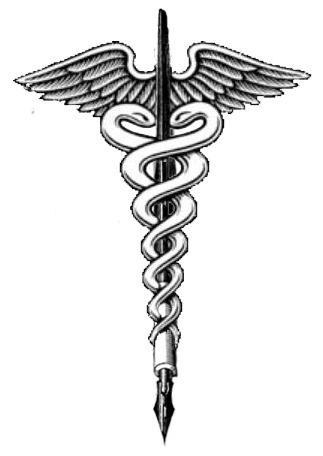|
Another Way to Phone Home
by Dr. Laura Prager
As the Director of the Child Psychiatry Emergency Service at a major metropolitan hospital, I am "on call" for emergencies almost every night. I have never minded being called, no matter the hour. I'm not indefatigable, just accustomed. The stories I hear are usually disturbing and sometimes tragic, but they belong to others. The 17-year-old "found down" in a park, brought in by terrified friends who aren't sure what she ingested but are sure that she is out-of-control, is always manageable from afar. Years have gone by and I have remained confident and in charge. That is, until my oldest child went off to college; suddenly, one of those independent, inexperienced, impulsive teenagers out there belonged to me.
The summer before college, Sam's cell phone fell overboard on an ill-advised sailing trip in the fog. Even when replaced, communication lines were down. Phone calls seemed to create a closeness he didn't want. I doubted that I had made it to his contact list. For a while, texting proved to be the right combination of contact and distance: terse messages that alerted me to his whereabouts and plans.
When school finally started, I anticipated that he might call every Sunday evening, as I had done during my college years. After dinner, my roommates and I took turns making our obligatory calls home on the heavy black push-button telephone plugged into the wall. But I felt silly asking him to follow that 25-year-old custom, so all I said was, "Be in touch."
Weeks went by and occasionally a text would surprise me with a sonorous "ping." Once I got a text that read I am completely lost. I texted him back right away with Call me. What was he doing? Was he alone, frightened? The next ping brought the rhetorical Why? Do you understand my statistics course?
Then one night, several weeks into college, the call I have always secretly dreaded startled me at 3 AM. The name and number on the screen were my son's. Why was he calling me in the middle of the night? Was there an emergency?
"Hello," I answered with a shaky voice, "Sam?" All I heard was whoosh, whoosh, and then some unintelligible noises that sounded not only distant but ominous. "Sam, are you there?" I yelled. "What's the matter?" But no young man's voice replied.
By this time I was up out of bed, pacing.
My husband turned over. "Probably just a pocket dial," he mumbled.
Pocket dial? That was a pocket dial? How would I know? My throat dry, my heart still pounding and my hands trembling, I texted Sam: DID YOU TRY TO CALL ME? Long minutes went by while I waited. Message sent 3:05 AM. If I don't get a return text by 3:15 AM, I don't know what I'll do. At 3:10 AM, the "ping" of a text message reverberated loudly in our bedroom—Sry, pckt dl.
OK. He's alive and well enough to text and use a comma. I can't say I rolled over and went back to sleep, the way I often do after fielding an emergency room call, but my heart rate and breathing returned to normal.
"Sorry about that," he said when I called him to confess that his "pocket dial" had frightened me out of my wits. "I can't imagine how it happened. I'll fix it."
He didn't. No more than once a week, but always late at night, my phone rang and I was greeted with the same underwater static. I stopped panicking every time, but I always sent a text, Are you trying to reach me? in order to get that reassuring, Sry, pckt dl. The holiday break offered a bit of relief: no jarring calls in the middle of the night. Then, from a distant ski weekend with friends came a phone call that brought me only a schussing sound. Again, the text-- Were you trying to reach me? It was well into après ski before I learned, Sry. Skiing sweet.
"I just don't understand it," he told me when I raised the problem again. "This doesn't happen with anyone else. I don't even have your number on speed dial."
When he went back to school, my anxiety finally became irritation. Sam knew all about my job and the kind of calls that jerked me awake in the wee hours. It was difficult to miss the irony. Was this his way of reminding me that, emergency or no, he sometimes needed me, too?
Several weeks into second semester, I got an unsolicited text, "I have no clue why my phone keeps doing this. To fix it I am going to delete you as a contact (obviously I remember your #)."
So there was good news and bad news. I had made it to his cell phone contact list, only to be deleted. But I could deal; I remained on his mental Rolodex. He knew how to find me when and if he needed me. Luckily, as yet, there had been no emergency, just another adolescent struggling to transition to young adulthood, trying to figure out how and when to phone home.
---
Dr. Laura M. Prager is an Assistant Professor of Psychiatry at Harvard Medical School and Director of the Child Psychiatry Emergency Service at Massachusetts General Hospital.
|
